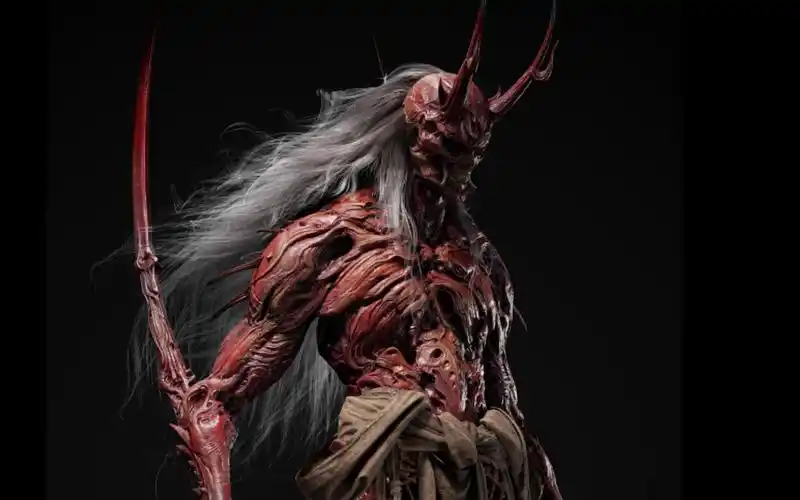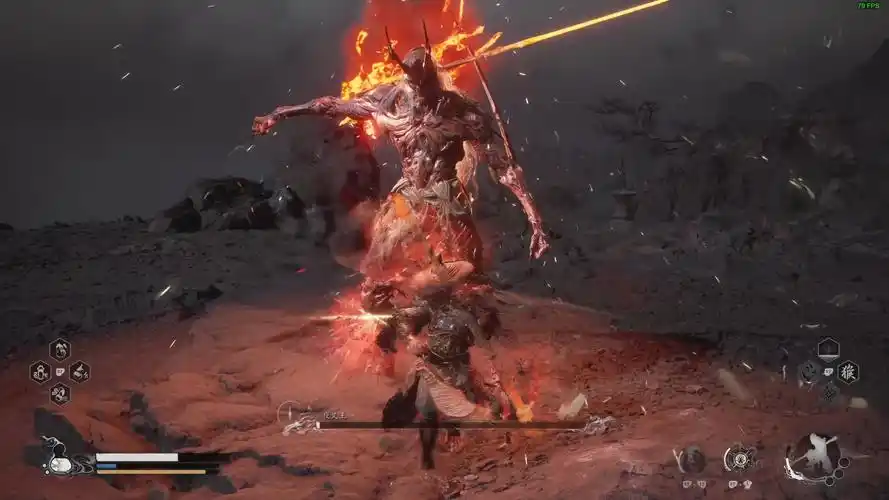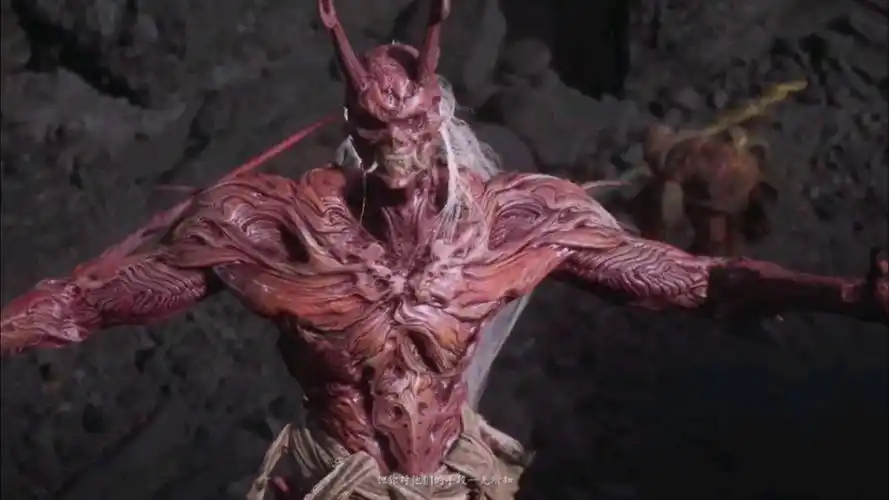In this chapter, we will delve into the backstory of the Yaksha King and the Yaksha clan.
In Buddhism and Indian mythology, Yakshas are semi-divine beings, part Immortal and part Ghost, known for their robustness, agility, and speed. The Sanskrit word for Yaksha translates to “swift ghost,” embodying attributes of agility and vigor, and is also rendered as “Yaksha” in other contexts.
Yakshas originally stem from ancient Indian mythology. Within Brahmanism, Yakshas are minor deities under the God of Wealth, Kubera, often opposing the Rakshasas and revered as “ghost-eating” Immortals. With the introduction of Buddhism, the image of Yakshas transitioned from divinity to Guai in Chinese culture, mistakenly identified as man-eating Ghosts. In Buddhism, Yakshas are classified as one of the Eightfold Path of the Celestial Dragons, with many Yakshas converting into Guardian Deities tasked with “protecting the realm of sentient beings.”
There are several types of Yakshas, including aerial Yakshas, terrestrial Yakshas, and ethereal Yakshas. Aerial Yakshas possess wings to fly, their bodies capable of myriad transformations, sometimes appearing as human-animal hybrids. Terrestrial Yakshas are known for their green-flamed hair and peculiarly shaped eyes. Ethereal Yakshas, the highest in spiritual attainment, move unseen and traceless. In Chinese culture, Yakshas are often depicted as hideous yet physically strong, commonly used to describe unruly and fierce individuals.
The transformation of Yakshas from divinities to Guai in Chinese culture signifies a blend of cultural intermingling and misunderstanding. Tang dynasty scholar Zhang Juo, in his “Comprehensive Records from Court and Country,” noted that ugly and fierce-looking men were often called Yakshas, and similarly aggressive and unruly women were referred to as female Yakshas. Today, the term is frequently used to describe someone brutish or fierce.
Regardless of their portrayal in the original text of “Journey to the West” or in the game “Black Myth: Wukong,” the fate of the Bull King’s family is unfortunate. Not only are they dependent on others, living at the mercy of others, but they are also unable to reunite as a family. In the game “Black Myth: Wukong,” even the life of the Red Boy is not spared.
The root of all these tragedies was neither due to Sun Wukong causing Havoc in Heaven, defying both the Celestial Court and Lingshan, and dragging the Bull King’s family into his conflict; nor was it because the Bull King consistently made the wrong choices, first opposing the Celestial Court and later helping them to eliminate Sun Wukong; nor was it because Red Boy was obstinately misguided, determined to seize the great sage’s Root Instrument and refusing to be a stooge for the Celestial Court and Lingshan. The true cause was the downfall of the Rakshasa and Yaksha nations—national and familial devastation that entangled Rakshasi, the princess of Rakshasa, and Red Boy, the prince of Yaksha, along with the Bull King, culminating in this family tragedy.
The Yakshas are naturally straightforward, brave, and fierce, while the Rakshasas are romantic and credulous. The Yaksha king had eight great generals, commanding a formidable army, whereas the Rakshasa princess, a devout follower of Buddhism from a young age, committed herself to doing good deeds for the world. In the early years, a temple near the coast of the Western Sea in Rakshasa was once troubled by a sea guai, which the Rakshasa princess subdued through recitation of Buddhist scriptures, converting a group of sea Rakshasas into her guards and leading them towards Enlightenment. However, because both Yakshas and Rakshasas have terrifying appearances and possess innate divine powers, these unusual beings were ultimately unable to coexist with the righteous path. A century later, the Buddhist nation in the west first annihilated the Yakshas, then the Rakshasas, and subsequently subdued many to join the Eightfold Path of the Celestial Dragons.
Following this conflict, the Yaksha nation was nearly wiped out, with all eight generals killed and the royal family perished. Those who escaped did so as enemies of Buddhism. Among the Rakshasas, there were also escapees, but because their princess was a devout Buddhist, she surrendered, converted to Buddhism, and later became a disciple of Taishang Laojun to seek Enlightenment. This is the sorrowful secret behind the Yaksha clan.
Why does Lingshan seek to annihilate the Yaksha clan? The original text does not mention it, but both the Yaksha and Rakshasa are formidable in strength. This is likely tied to the distribution of spiritual essence and power struggles. In the game, the Yaksha King says, “To be the ruler of a nation, yet not die on the battlefield?” The implication is that the Yaksha King met his end not in glorious battle, but in disgraceful internal strife. The Rakshasi shares an irreconcilable enmity with Lingshan, much like that of Red Boy. If there’s any difference to be noted, it is that in the war that obliterated their nation, the son of the Yaksha King perished, while the daughter of the Rakshasa King survived. This is one of the reasons Rakshasi regards Red Boy as her own.
